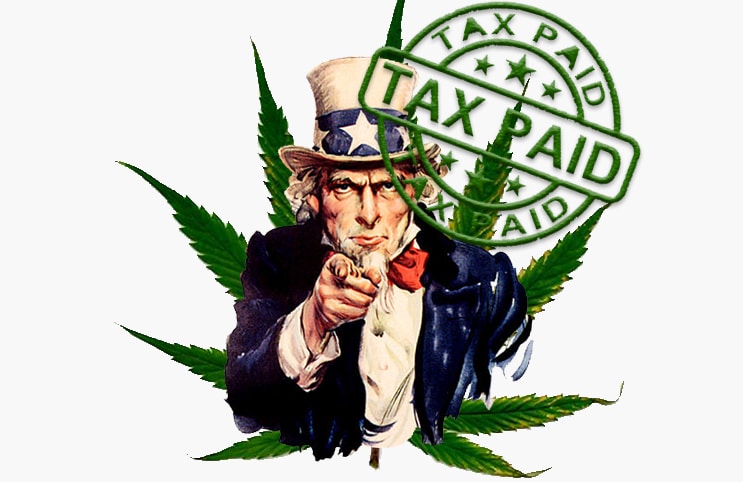
Although the medical use of marijuana has been legalized in 37 states, its recreational use is legal only in 19 states. (South Dakota voters approved a recreational marijuana initiative in the 2020 election, but it was overturned by a state circuit judge and upheld by the state supreme court.)
That is still a lot of states with legal weed considering that it was not until 2012 that the first two states (Colorado and Washington) legalized the recreational use of marijuana. In just the last two years, eight states have legalized recreational marijuana use.
What is even more amazing is that the states have done this while the federal government still classifies marijuana as a Schedule I controlled substance under the Controlled Substances Act (CSA) with “a high potential for abuse,” “no currently accepted medical use,” and “a lack of accepted safety for use of the drug under medical supervision.”
But the problem with marijuana legalization on the state level is not that it is still illegal under federal law. The problem is that there are so many government rules and regulations on the state and local level that the marijuana market can hardly be considered free at all.
A case in point is the city of Denver — “ home to one of the most mature marijuana markets in the world, with $689 million in sales last year.”
To counter the disproportionate number of white-owned cannabis companies, Denver, following the lead of cities like Oakland, California, and Cambridge, Massachusetts, has launched a social equity program that sets aside licenses for delivery operators and cannabis lounges for approved operators. Beginning in 2021, “Denver reserved new licenses of all types — dispensaries, producers and cultivators — solely for social equity applicants. Entrepreneurs can qualify for the program if they or a family member were arrested or convicted of a cannabis offense, or by meeting certain residency or income requirements.” The state of Colorado has also given out “half a million dollars in grants to help fund social equity applicants.” Most cannabis dispensaries aren’t actively making deliveries because local governments must pass an ordinance to allow them, and “only a handful of the state’s nearly 300 jurisdictions have OK’d deliveries.”
The libertarian position on marijuana legalization is straightforward. There should be no rules, restrictions, or regulations at any level of government for any reason regarding the buying, selling, possessing, growing, processing, transporting, advertising, using, delivering, or “trafficking” of marijuana. Neither should there be subsidies, licenses, or social equity programs. There should be a free market in marijuana just like the free market that exists in fruits, vegetables, clothes, bookcases, towels, and sheets.
Although it would certainly not be ideal, marijuana should be at least as freely available as alcohol.
Now, this does not mean that there is actually a free market in alcohol. Businesses must obtain a license to sell alcohol. Legal adults that are 18 and can get married, enter into contracts, purchase pornography, adopt children, vote, and join the military still cannot purchase alcoholic beverages until they reach the age of 21. Alcohol cannot be sold before or after certain times of the day depending on where one lives and what day of the week it is. Alcohol is heavily taxed. Some states have government liquor stores and outlaw private liquor stores. And some states still have dry counties.
Despite all that, however, almost any American who wants to can purchase as much beer, wine, and spirits as he wants, store as much alcohol in his home as he wants, and drink as much as he wants in his own home without fear of government agents breaking down his front door and arresting him for doing any of these things.
Any marijuana user should likewise be able to purchase or grow as much marijuana as he wants, store as much marijuana as he wants, and smoke as much as he wants in his own home without fear of government agents breaking down his front door and arresting him for doing any of these things.
Now, we know that in a free society, alcohol and marijuana would both be available to adults without rules, regulations, or restrictions. In a free society, marijuana wouldn’t be taxed more than anything else (and preferably not at all). In a free society, liquor stores and marijuana dispensaries wouldn’t be treated differently from other retail outlets. In a free society, business owners would decide what days and times they would offer alcohol or marijuana for sale, and in what quantities. In a free society, no one would have to get a license from the government to sell alcohol or marijuana.
The problem with marijuana legalization, then, is that it is barely legal. Marijuana legalization should never be confused with marijuana freedom.
Reprinted with permission from Future of Freedom Foundation.

